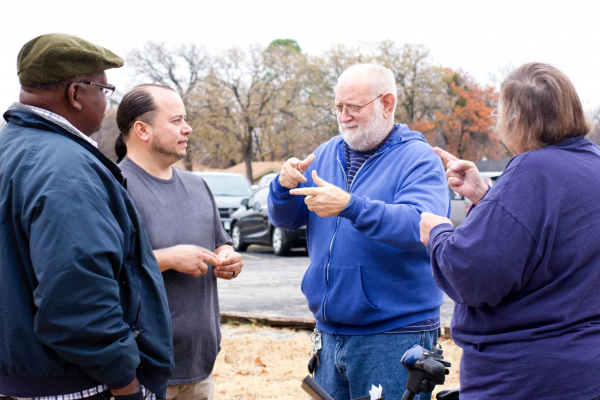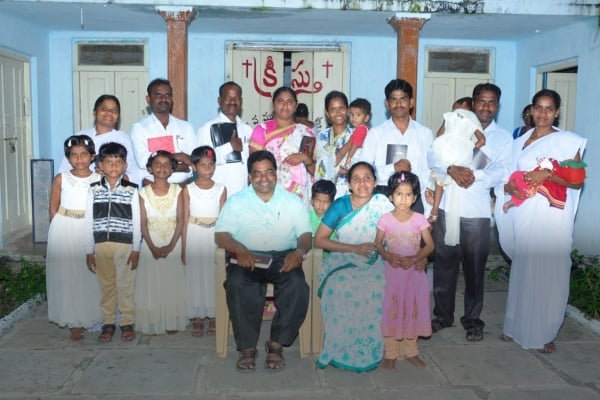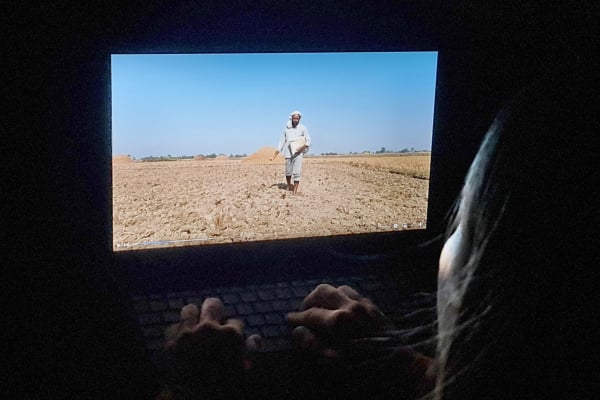
What If I Struggle? Mental Health and Cross-Cultural Ministry
You’ve likely seen the statistic: One in five American adults experiences a mental illness in a given year. There’s a good chance you’ve heard reassurances that mental health challenges aren’t a measure of a person’s faith and have been told that they shouldn’t be a cause for shame.
This is all true, and these ideas can be life-giving for those who deal with mental health challenges. But they don’t necessarily help when you’re in the thick of the struggle or are wondering how your history of mental illness might impact your ability to pursue missions.
What does it actually mean if you deal with a mental health challenge and want to serve among the least-reached? While everyone’s story is unique, below are seven key principles about mental health and cross-cultural ministry that can help you as you seek God’s direction.
Know that mental health struggles are common—including among cross-cultural workers.
Nearly everyone considering cross-cultural ministry has dealt with mental health issues at some point. These struggles come up during the application process more often than not, and many who are preparing to serve are currently wrestling with issues like depression and anxiety.
The same holds true for those on the field because cross-cultural workers are humans, and that one-in-five statistic doesn’t disappear just because a person moves overseas. There’s nothing about serving in a cross-cultural context that makes you immune to mental illness or that turns the things you struggle with into nonissues—and in many cases the challenges of the field can actually increase your risk.
Understand that the challenges of the field multiply existing struggles.
Learning a new language, adapting to a different culture and being far from family and friends is stressful—and that doesn’t even include the difficulties and pressures of ministry in a least-reached community.
All of these stresses can magnify existing mental health challenges as well as be major contributing factors in new struggles that emerge on the field. Saul,* for example, began experiencing depression after a series of major losses, hardships and hurts while serving in South Asia.
Whether you currently wrestle with a mental health issue or not, it’s important to know that serving overseas can prompt challenges that lay dormant to awaken and surface. Because of this, it’s vital to be proactive about your mental health, even if you’ve never struggled in this area.
Do the hard work.
Just as it’s important to address any physical health issues you’re dealing with before you leave for the field, grappling with the mental health challenges you face now is a key step in preparing well for the field. So, find people who can help you work through the hard things.
Seek out a counselor who can provide a safe, guided space for you to process your experiences and struggles, as well as help you identify your triggers and any beliefs that might be holding you back. Work with him or her to create a toolbox for navigating the challenges you’ll face overseas and the ways they’ll potentially impact your mental health. If medication is one of those tools, be sure to consult a psychiatrist as well to determine the best options for you.
Thoroughly addressing mental health struggles takes time, and committing to this process might mean delaying your departure. But it’s an investment—not only in your future wellbeing but in your ministry on the field and in the people God places in your life. By being mentally healthy before you go and having a support plan in place, you can set yourself up to thrive for the long haul.
Openness is key.
Support from others plays a vital role in mental health, especially amid the challenges of cross-cultural ministry. But others can’t come alongside you well unless they know what you’re facing.
Leora,* who was diagnosed with a mental illness while serving in East Africa, advises, “Don’t internalize your struggles in the process of going to the field or while on the field. Openness with safe people is critical to working through things and progressing well.”
Openness is important not only with a counselor but with other trusted individuals who can listen, give feedback and offer practical support, as well as pray with you and for you. If you haven’t already, choose a few people, such as a family member, friend or pastor, and share your struggles with them. Invite them to check in with you from time to time, and don’t be afraid to mention specific ways they can come alongside you.
In addition, it’s important to be transparent about your struggles with any organizations with which you’re considering serving. Be open both during the application process and with your future team leaders so that they can support you well from the start.
Cultivate spiritual disciplines now.
Although spiritual disciplines don’t magically erase mental illnesses or automatically ease symptoms, they can be essential parts of your mental health toolbox. These practices can easily fall by the wayside during seasons when your mental health takes more of your energy, but cultivating habits of prayer and time in God’s word can help you attend well to your soul even in times of struggle.
Be intentional about establishing rhythms of spiritual disciplines now—before the challenges of the field hit. And take the time to identify promises from God that speak to the issues you face so that you can more easily bring them to mind in the future. Saul, for example, found that “My grace is sufficient” became a lifeline of hope in a dark season.
We’ll walk with you.
You don’t fit in a box, and we’re committed to learning your story—both your passions and your struggles. Our Mobilization team will walk alongside you each step of the way as you consider how the Lord is leading you and how your mental health might impact your path to participating in the Great Commission.
In addition, if God leads you to serve on a Christar team, you’ll have the support of Christar’s member care network around the world. This team provides encouragement, resources, training and coaching for workers in every stage of their ministry, with the goal of helping them be healthy, resilient and effective.
God has a place for you in the Great Commission.
Mental health struggles may be part of your story, but they’re not your whole story. And they don’t define your worth in the Great Commission.
There’s no one-size-fits-all path to being involved in missions amid mental health challenges. Some believers, through careful consideration and prayer, decide not to go but instead become powerful advocates for the needs of the least-reached. God leads others to serve short term or in Stateside roles, using their professional skills to help cross-cultural teams serve more effectively. And He guides some to move overseas amid the struggle, surrounding them with members of the Body of Christ who can help them stay healthy and persevere.
Leora encourages those who deal with mental health challenges to push back against the fear that these struggles will prevent them from being part of what God is doing around the world. “You are not disqualified because of what you deal with inside,” she emphasizes. “Don’t let those struggles define you.”
Regardless of what you’ve struggled with or what you’re wrestling with now, God wants to use you for His glory among the nations! Hold your plans loosely and trust Him to use you.
We’d love to come alongside you as you consider your role in the Great Commission! Just email [email protected] to connect with us.









































_1724957011_600x400.png)
